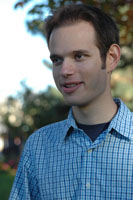Herbal Weight-Loss Supplements Loaded with Illicit Drugs
While herbal weight-loss supplements may bring the promise of shedding pounds using "natural" products, a new study shows that many are laden with pharmaceutical agents (lab-made drugs) — some of which are illegal.
The researchers analyzed 81 weight-loss products that had been taken by 66 patients who had come in to the hospital for treatment for poisoning. One of the patients had died.
While the authors caution their findings should not be interpreted as a full analysis of the weight-loss supplement market, they found two or more pharmaceutical agents in 61 supplements they tested, and two supplements contained six of these drugs.
"A wide variety of illicit, weight-reducing agents has been found in proprietary slimming products that are readily available to the public. Importantly, ingestion of these products may result in significant toxicities and even mortality," said the study authors, who are researchers at the Princess Margaret Hospital in Hong Kong.
While the study's research took place in Hong Kong, the problems have reached America's shores.
"This is exactly the same issue that we're faced with here," said Dr. Pieter Cohen, a general internist at Cambridge Health Alliance and an assistant professor of medicine at Harvard Medical School. Cohen said that due to their surveillance procedures for drugs, researchers in Hong Kong are "often on the vanguard of identifying problems."
In the United States, an estimated $34 billion is spent annually on alternative medicine, including supplements. But the products, sometimes called botanical supplements or herbal remedies, are not well studied and in many cases could be dangerous, according to a study earlier this year in Chemical & Engineering News.
Sign up for the Live Science daily newsletter now
Get the world’s most fascinating discoveries delivered straight to your inbox.
In late 2008 and early 2009, the Food and Drug Administration made three announcements, alerting consumers about a total of 72 weight-loss supplements containing undeclared drugs. Those recalls found drugs in the products that included sibutramine, a controlled substance then-prescribed for weight loss, and fluoxetine, an antidepressant best known as Prozac.
The most common agent found in the supplements in the Hong Kong study was sibutramine, which was detected in 59 of the products tested.
Sibutramine was sold under the trade name Meridia in the United States The anti-obesity drug was voluntarily withdrawn by the manufacturer last week, after a study showed it was associated with an elevated risk of heart attack and stroke.
But a number of supplements tested in the study also contained banned drugs. Thirteen weight loss supplements contained the appetite suppressant fenfluramine.
"Fenfluramine is the bad actor of the Fen-phen diet pill," said Cohen, referring to the weight-loss drug pulled from the U.S. market in 1997 for its association with heart attacks.
A second banned substance found in the supplements, the laxative phenolphthalein, was outlawed because of an association with cancer.
Cohen said perhaps the most disturbing finding was the presence of analog drugs in the supplements. Analogs are drug molecules that have been further modified in a lab.
"This hasn't even been studied in mice," said Cohen. "This is really using the consumer… as guinea pigs."
The fact that herbal supplements may contain pharmaceuticals, allowing pills to show benefit to consumers while under the guise of being natural, is not a new discovery. But Cohen said findings like these make trouble for consumers, as they cannot simply make a choice to take a supplement based on the research.
"In this case, as soon as you start dealing with adulterants, there's no ability to make decisions, because you don’t know what is in there or what the side effects are," he said.
The new study was published today (Oct. 13) in the British Journal of Clinical Pharmacology.
- Successful Dieters Drool Less When They See Food
- FDA Approves Fat-Busting Laser, But Do Results Last?
- Leaving Night Light On Could Cause Weight Gain
This article was provided by MyHealthNewsDaily, a sister site to LiveScience.

